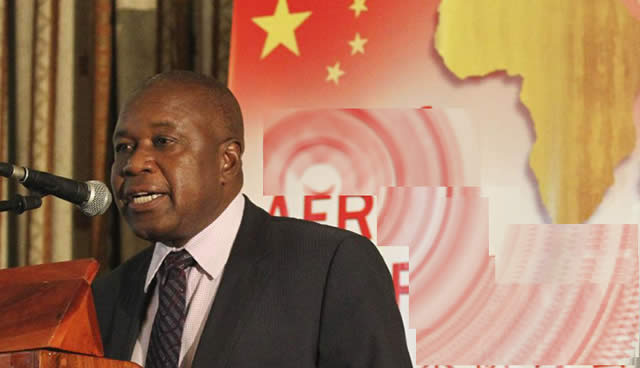Exciting times for chrome miners…As China places $400 million order

Dosman Mangisi Mining Correspondent—
A CHINESE company, Tsingshan Iron and Steel Group, has placed an order for four million tonnes of chrome ore worth about $400 million from small-scale miners in Zimbabwe following the recent lifting of a ban on raw exports of the mineral, a Cabinet minister has revealed. With the government proposing a price of up to $90 per tonne, chrome ore miners will be able to pocket $50 profit per tonne after factoring in $40 cost of production per tonne.
The proposition is set to excite players in the sector who previously sold their produce at between $35 to $40 per tonne.
The Minister of Welfare Services for the War Veterans, War Collaborators, Former Political Detainees and Restrictees, Christopher Mutsvangwa told a gathering in Gweru that the deal would mainly benefit youths and former freedom fighters that are into chrome mining.
He said his ministry was seized with organising economic projects for former freedom fighters in various sectors such as agriculture, mining and manufacturing.
Tsingshan has already established its subsidiary company in the country, AfroChine — a chrome smelting company.
The country stands to benefit immensely from huge stockpiles of up to 50 million tonnes of chrome ore that accumulated in the last four years of the ban.
The minister said the chrome deal would help improve the welfare of war veterans and their war colleagues who want to venture into chrome mining.
He said increased participation of war veterans among other ordinary Zimbabweans in the economy was in line with the country’s empowerment thrust as espoused in the Zim-Asset blueprint.
“As a ministry I can safely say we’ve struck a deal to supply four million tonnes of chrome ore to a Chinese company which already has its subsidiary in Zimbabwe, AfroChine. This is the first step in empowering ourselves as war veterans”, said Mutsvangwa.
“We’ll be supplied with mining machinery to mine the chrome ore. So we need to organise ourselves and form companies that will engage heavily in the mining of chrome. The Midlands should be our starting point of setting up such companies.
“We’ll also incorporate youths who are into mining and have expertise. Let’s move from begging into becoming businesspeople who’ve a capacity to lend even the government itself.”
Mutsvangwa said the chrome sub-sector was a strategic unit in the broader mining industry with the capacity to steer quick economic turnaround.
“The economy and life of our country depends heavily on metal minerals. We want to see two major cities here Gweru and Kwekwe coming back to life through the iron and steel industry,” he said.
“War veterans want chrome mining rights to be vested in the powers of the President and government. Currently huge chrome ores reserves in the country belong to Zimasco and Zimalloys, which fall along the whole Great Dyke.”
Zimbabwe Miners Federation (ZMF), an umbrella body representing all small-scale miners in the country, has been lobbying the government to repossess all unutilised chrome claims.
Last month, war veterans and youths demonstrated against Zimasco in Shurugwi seeking a takeover of chrome claims and a petition has since been submitted to the company.
The government imposed a ban on raw chrome exports in April 2011 in a bid to promote value addition and beneficiation of the mineral.
However, the move was hampered by a number of challenges in the smelting of chrome such as high electricity tariffs, falling international prices of ferrochrome and lack of efficient and modern technology for processing chrome ore into ferrochrome.
The ban negatively affected small-scale chrome miners who were left vulnerable, prompting the government to lift the embargo to open a window for the export of 30 million tonnes of chrome ore in the form of lumpy, fines and concentrates.
A number of measures have also been reviewed to promote chrome ore mining.
These include the scrapping of a 20 percent export tax and a reduction of power tariffs from 8,0 cents to 6,7 cents.
The lifting of the export ban is projected to steer economic activity in the country, create employment and resuscitate the ailing National Railways of Zimbabwe.










Comments